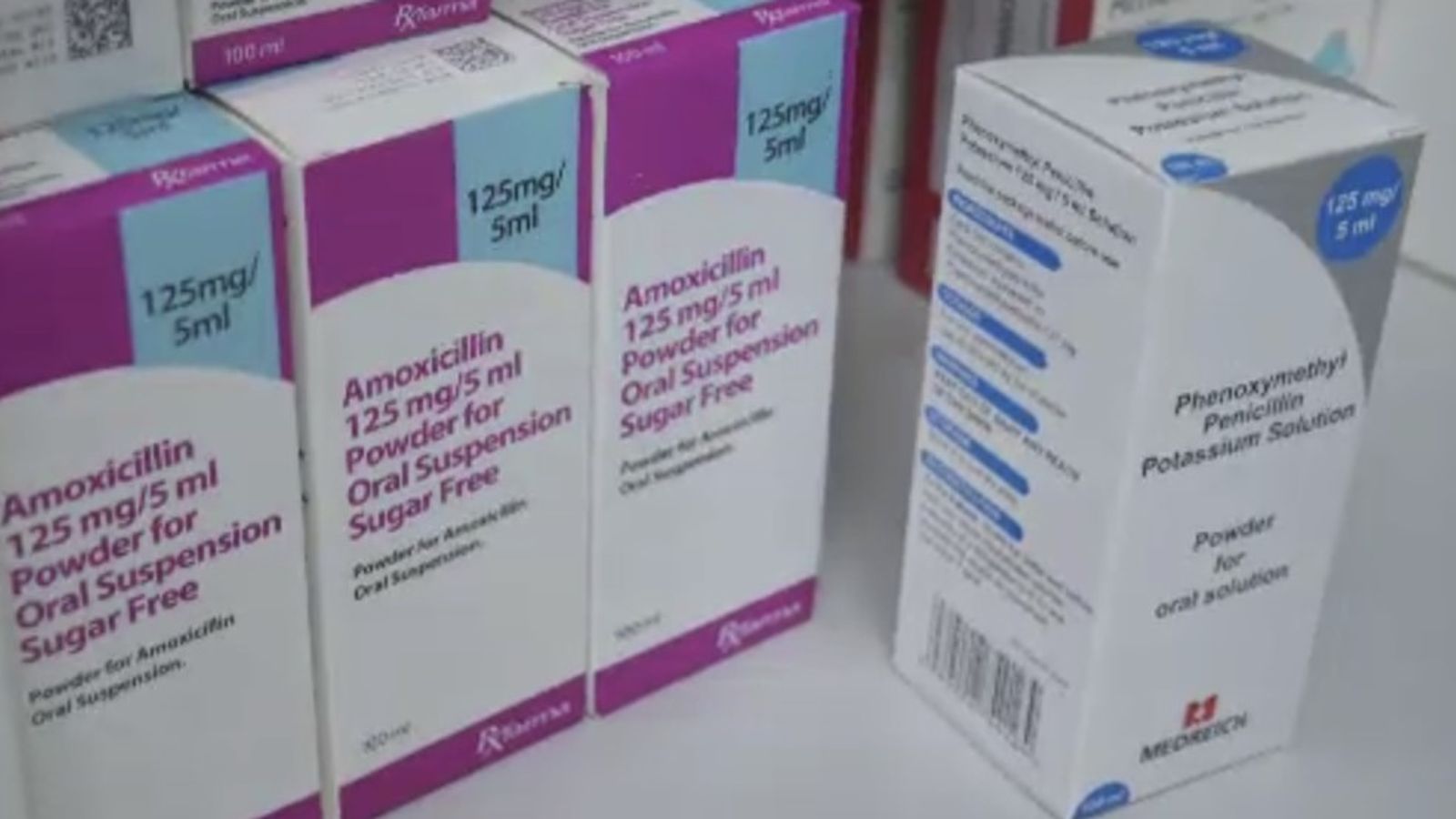Pharmacists have been allowed to supply alternative penicillin to treat Strep A.
Serious Shortage Protocols (SSPs) have been issued for three medicines as the government moves to respond to increased demand.
The protocols will help mitigate supply issues and allow pharmacists to issue alternative forms of medicine if they do not have the specific medication prescribed.
The SSPs come following the news that there have been 16 confirmed deaths in the UK of children with Strep A since September.
According to the government the protocols are a standard procedure, used frequently to manage temporary and potential medicine supply issues.
The government says this is simply a safe and effective way to ensure that medicines continue to be available.
However, some pharmacists believe the authorities have been dishonest and an investigation has already been launched into the skyrocketing price of penicillin since the spike in cases.
Strep A outbreak: Inquiry launched after death of a child in Powys
Strep A: Funeral for ‘bright and talented’ five-year-old girl who died in Belfast
Competition regulator to investigate antibiotics price rise following surge in Strep A cases
Sri Kanaparthy, who owns four pharmacies – three in county Durham and one in Barrow-in-Furness – told Sky News: “I feel like the government are lying as up until yesterday they were saying there is not shortage despite pharmacies across the country screaming to say they can’t get hold of the antibiotics for StrepA.
“Now all of a sudden they release a SSP which means a serious shortage protocol.
“It proves that the government all along knew there was a shortage but simply not prepared to stand up and accept there is a shortage.
“Sadly this behaviour of the government is not just an isolated incident but a regular occurrence to pharmacy sector as despite knowing the sector is a serious crisis with 25% real term funding cuts since 2016, the government fails to acknowledge and address those.
“It’s only a matter of time the community pharmacy sector will collapse unless an urgent intervention is made by the government.”
Please use Chrome browser for a more accessible video player
Usually when a patient presents a prescription, by law, the pharmacist can only supply what is on the prescription.
If the medicine isn’t available, the patient must be sent back to the prescriber to get a new prescription for an alternative.
Issuing an SSP allows pharmacists to legally supply a specified alternative medicine, removing the need for the patient to return to the prescriber – which saves time in GP practices and inconvenience for patients.
The SSPs apply to the following medicines:
Penicillin is the drug of choice to treat both mild and severe cases of Strep A, and with the recent surge in cases sparking the shortage of the medication.
Though erythromycin and clindamycin can be used cases in where patients are allergic to penicillin, both these anti-biotics have seen increased rates of resistance.
Minister of State for Health Will Quince said: “The increased demand for the antibiotics prescribed to treat Strep A has meant some pharmacists have been unable to supply the medicine shown on the prescription.
“These Serious Shortage Protocols will allow pharmacists to supply an alternative form of penicillin, which will make things easier for them, patients, and GPs.”
Strep A symptoms include flu-like symptoms, a sore throat, headache, fever, and muscle aches. If there is also a rash that feels rough like sandpaper it could be scarlet fever.







